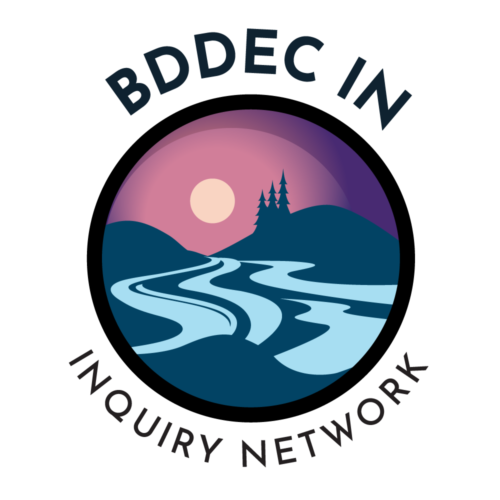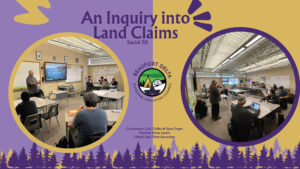BDDEC Inquiry Network

Inquiry Based Learning – students actively involved in solving authentic (real-life) problems within the context of the curriculum and/or community – formulating questions, investigating to find answers, building new understandings, meanings and knowledge, and then communicating their learnings to others ; play-based at the Junior/Kindergarten level; powerful learning experiences engaging students deeply, increasing student critical thinking, creativity, collaboration, communication, independence, emotional intelligence/self-regulation, and problem solving skills. This is essential for students to take on the challenges and opportunities ahead.
Inquiry Projects

My project is about is it warmer inside a snow pit or outside the snow pit that why we called it Snug under the snow this project is going to be fun I know it
https://projectboard.world/ysc/project/cutting-edge-technology-gnplqq
My project is about why Indigenous people are so susceptible to type 2 diabetes. I explore the relationship between genetics and major lifestyle changes. This epidemic is also due to the social economic construct that Indigenous people have had to deal with for centuries.
The main disease in question is Type 2 Diabetes as apposed to Type 1 Diabetes. Type 1 Diabetes is where the pancreas produces little to no insulin, whereas Type 2 Diabetes is where the body produces too much sugar to regulate in the bloodstream.
My project is really important, especially for the health of Indigenous people. It is important that I bring more awareness to these questions.
This project was started in support of Aurora Colleges CubeSat project which is a part of the Canadian Cubesat Project developed by the Canadian Space agency. In 2018 Aurora College along with fourteen other project teams won grants to develop, build, and eventually launch a series of NanoSatellites (called CubeSats) into Low Earth Orbit where they will be flown for 6 to 18 months before re-entry. This project was developed to design and experimentally prove a thermal model for the digital display on a deployable arm on Aurora College’s CubeSat. This modelling is required in order to design the thermal control system of the satellite to maintain operational thresholds for the digital display. To achieve this a mathematical model was made and then proven through experimentation in a vacuum chamber. Steps are now underway to augment these results to include an orbital model.
https://youtube.com/playlist?list=PLGERNRw2IMm8XfLsLSYZQ4GzVR2gXhY4b&si=Cya0kbOZjx86ZJ_M
Land-Based Education
Paddling the Tsiigehnjik – This documentary follows the students, staff, and community members from Tsiigehtchic in the Northwest Territories as they complete the 2019 Chief Paul Niditchie School canoe trip. This annual trip takes Grade 6-9 students up the Tsiigehnjik (Arctic Red River) where they learn resilience, reclaim historical knowledge, practice the Gwich’ya Gwich’in language, and engage in land-based learning as they paddle approximately 100 kilometres back to the community.
